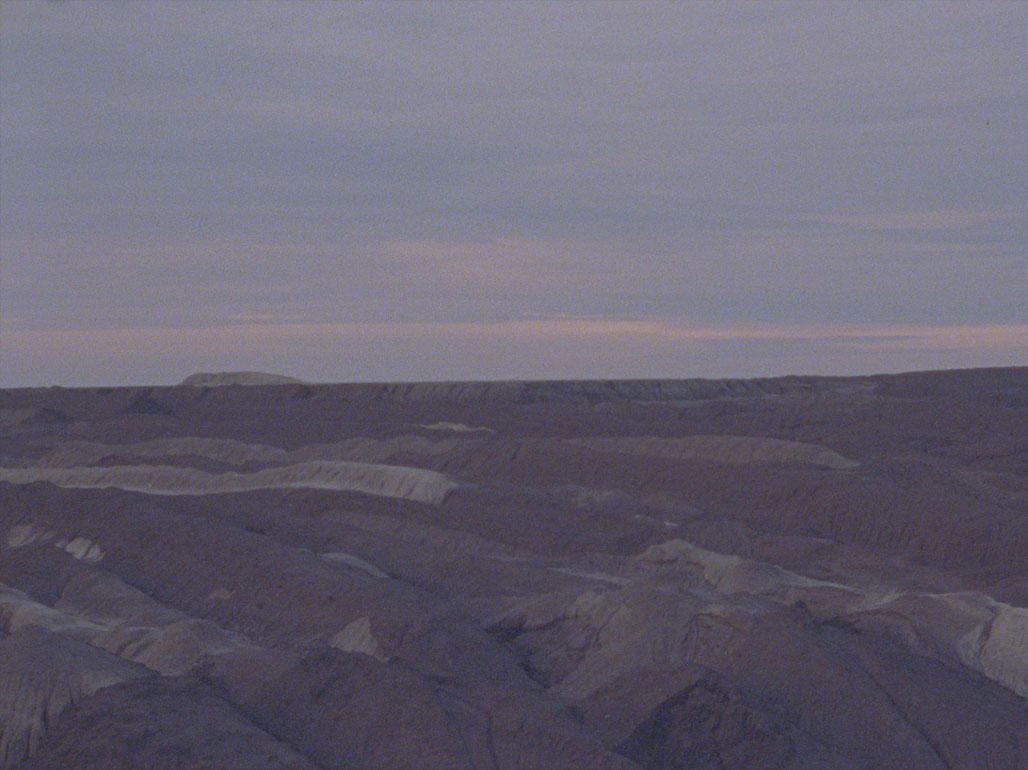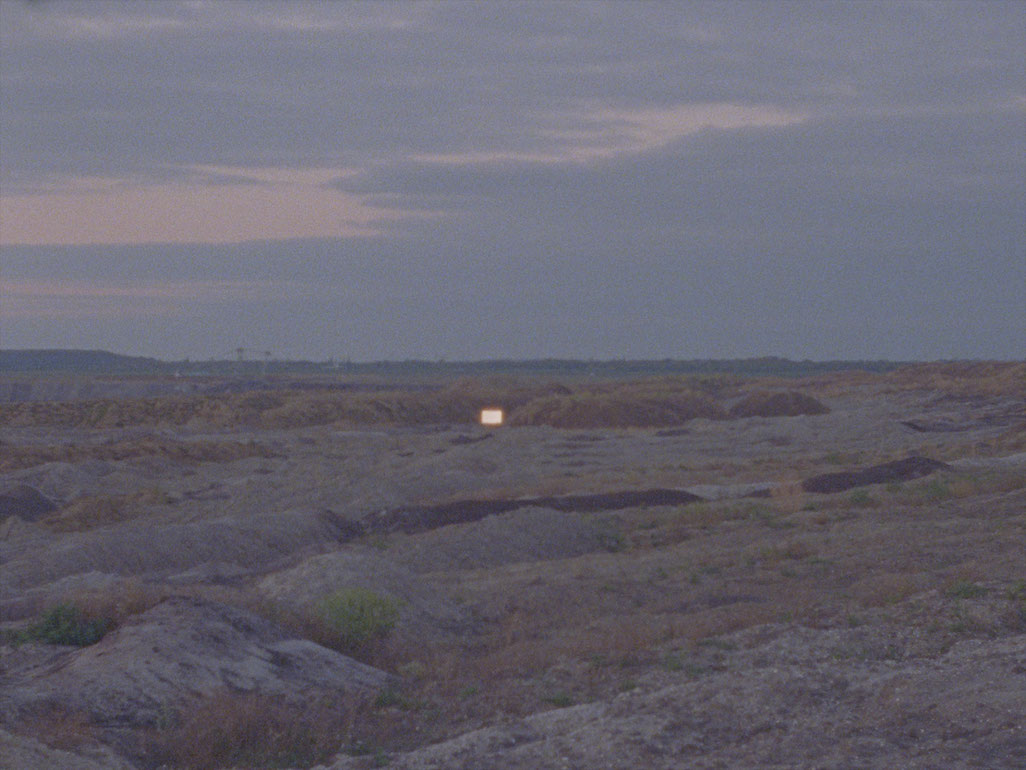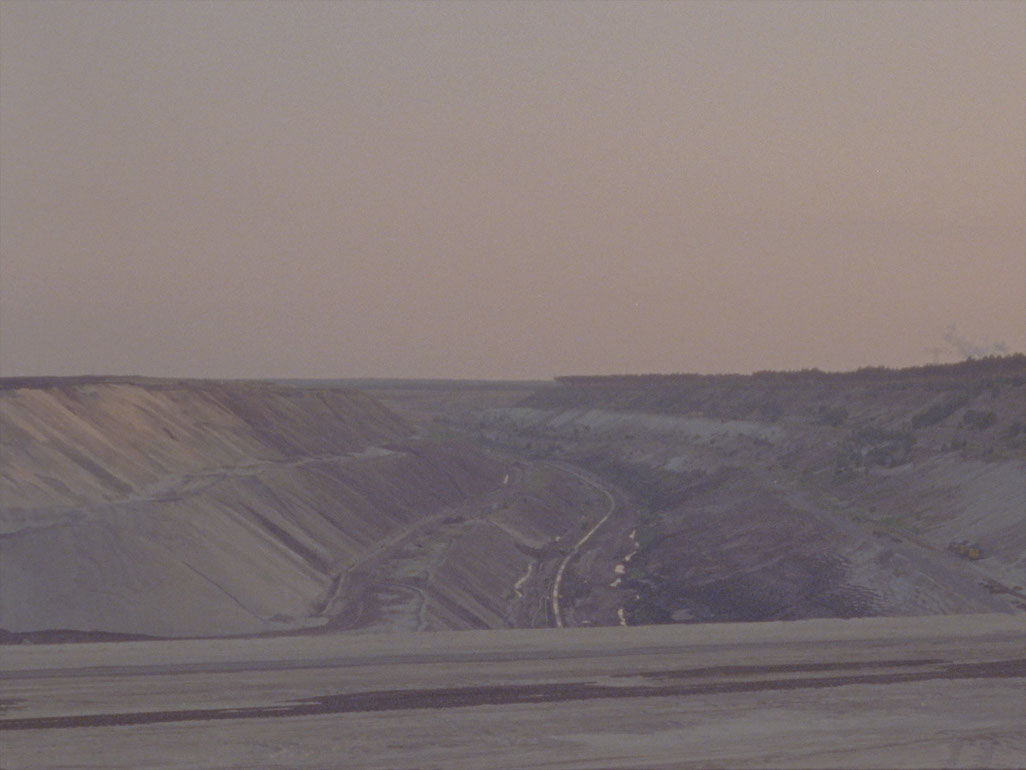Conveyor
Deep furrows in the first light of dawn. Or is it the evening twilight that’s revealing these lunar landscapes that open-pit mining has left behind? On the horizon, the towers of two power plants throw clouds of exhaust fumes into the air while the still active, steel mining giants flash persistently. In the somnambulistic images of the dune-like earth formations, Eginhartz Kanter captures the ambivalent beauty and melancholy of the scenery. The visible effects of the industrial land grab in the coal age testify to a dystopian, man-made emptiness.
However, in what remains from the obvious exploitation of nature, something is happening. The desolation is broken by a dazzling flicker. A white object slowly approaches the camera in the carefully chosen shots. Could it be a mirror, or possibly a screen? The 4:3 format of the surface is in any case similar to that of the 16mm film material chosen. Thus an empty projection surface in the midst of barrenness turns into a utopian promise. But a term from photography also comes to mind: the glowing white of the surface “burns” itself into the analog film in various “widths”.
With technical flair and conceptual consistency, Conveyor transcends the boundaries between structural film, photographic experiment, landscape observation, and ecological diagnosis of the present. The gradually swelling electronic sounds that accompany the images are generated from field recordings, and reinforce this concentrated contingency of a profoundly cinematic observation of nature. The conveyor belts do not stand still. They therefore resemble the movement of film in the camera, which in the case of Conveyor encourages the viewer to imagine other possible landscapes. (Jan-Hendrik Müller)
(Translation: John Wojtowicz)
Conveyor
2025
Austria
8 min



